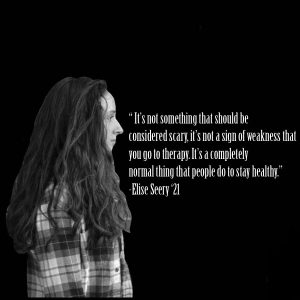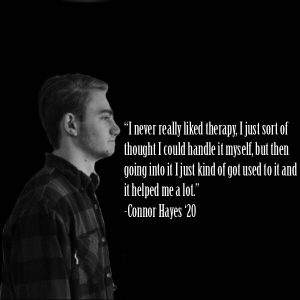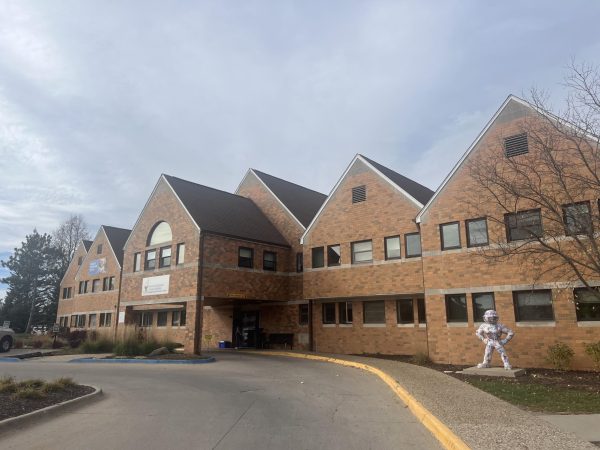Seeking help while facing stigmas
Many students at West seek to improve their mental health with professionals, yet there are still plenty of misconceptions surrounding the topic. Several students share how therapy has influenced them and the role that it plays in their life.
Draped across a couch, a person heaves the woes of their childhood and innermost thoughts, as a man in a tweed jacket with glasses takes notes. This is how a stereotypical therapy session is portrayed in New Yorker cartoons or on television, but such generalizations are a burden on people who benefit from this treatment.
While many teenagers across the country attend therapy, their reasons for seeking help and the role therapy plays in their lives is sometimes misunderstood by their peers. This can cause students who attend therapy to be confronted with stigmas or, in some cases, just not discuss therapy openly due to fear of judgement.
“Lots of people tend to have the stigma that therapy is for people that are crazy or they have issues, but when I started going I realized even if you don’t have that many issues, if you talk to someone about just tiny things it can help your life,” said Katherine Yacopucci ’20, who began therapy following her move to Iowa in sixth grade.
Doctor Patricia Espe-Pfeifer, a Clinical Professor of Psychiatry and Pediatrics, explained that people may attend therapy to help deal with mood, adjusting to life changes, situations with family or school or to cope with other stressors. A misconception she has encountered is the notion that only people with severe issues need a therapist.
“Most often the teenagers that I work with, they’re having to deal with issues that really were out of their control,” said Espe-Pfeifer.
This was the case for Elise Seery ’21, who attended therapy in sixth and seventh grade to treat her extreme phobia regarding sleep. At the time, Seery kept her therapy experience private because she was embarrassed she couldn’t sleep alone in her room and she didn’t have friends in therapy she could relate the experience to.
“That was really hard for me when I was younger. But now, I have some distance from what I went through that I feel like I can talk about it more,” Seery said.
One misconception Seery has noticed in her peer’s understanding of therapy is that only people with certain issues need to go to therapy.

“What is publicized is people who have depression and those kind of issues. People who have things like I do, like anxiety and phobias and that kind of stuff, people don’t believe them. And they don’t think that it’s important, necessarily, or as important,” Seery said. “I still have friends who have seen me at my worst and deal with that who don’t believe it and who just think I’m being dramatic.”
Taylore Kuenster ’19 has been in therapy since seventh grade and her acceptance of it has drastically since starting therapy. She was reluctant to start therapy because she felt the therapist would take the side of her parents over hers and held a grudge against her first therapist because of it. She also avoided talking about it due to fear of judgement. She has become open about her experience over time, but that has led her to face overgeneralizations.
Sometimes when she mentions she is in therapy people assume she is depressed, has anxiety or self harms, which bothers her because mentioning those issues can be triggering to people who are affected by them.
Infographics by Sidney Kiersch
Pull quotes by Emma Hall
Your donation will support the student journalists of West High School. Your contribution will allow us to purchase Scholarship Yearbooks, newsroom equipment and cover our annual website hosting costs.

Natalie Dunlap is a senior and the Online Editor-in-Chief for the West Side Story. She is also involved in theatre and West High Democrats. When she's...

















